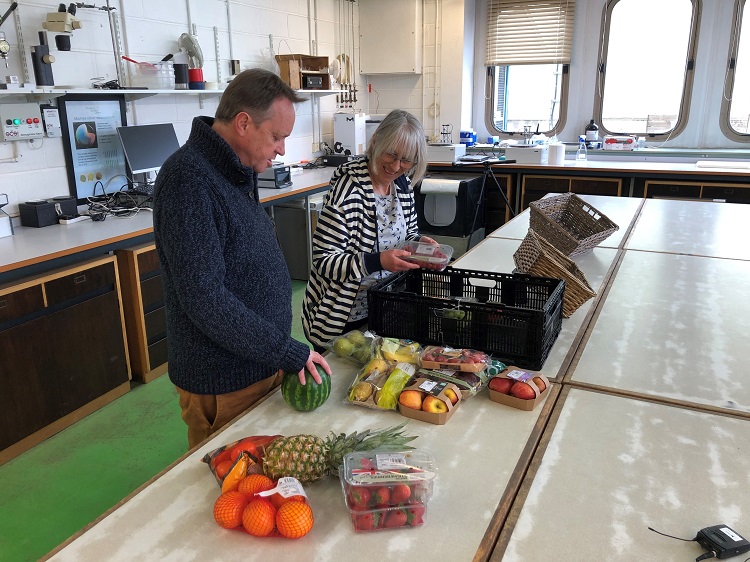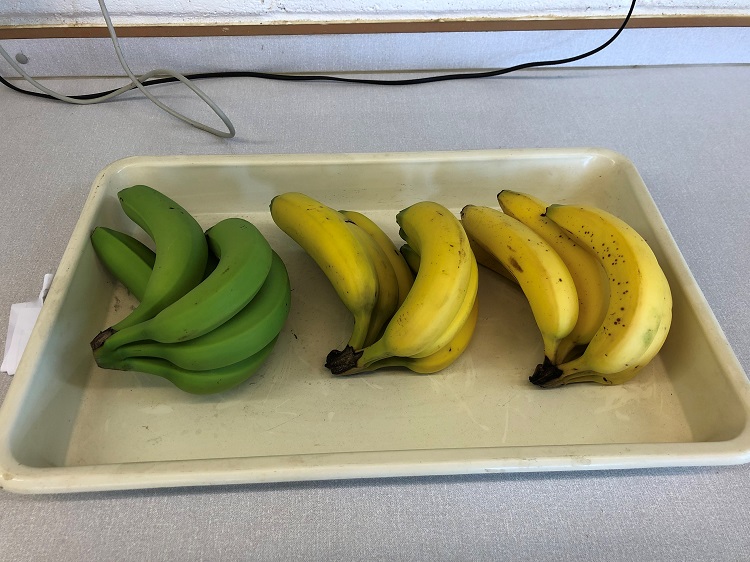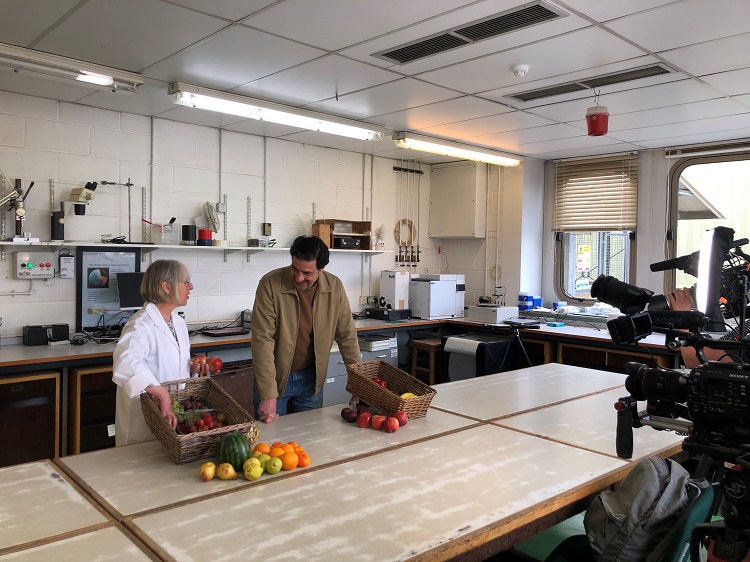We all know that eating fruit keeps us healthy, but often there’s a very small window of opportunity to eat the contents of our fruitbowl when it’s at its best. All too often fruit from the supermarket is either unripe, or about to go off. NRI’s Professor Debbie Rees was asked by Channel 5’s consumer show, “Secrets of your supermarket shop”, to explain how we can choose and store our fruit to get the most out of it.
TV host Alexis Conran met Debbie Rees at the Produce Quality Centre, NRI’s storage research unit located at the East Malling Trust Estate Kent, where he asked her a series of questions about fruit. In front of a table laden with produce such as strawberries, blueberries, avocado, pineapple and bananas, the cameras rolled while Debbie explained that fruit possesses a ‘biological purpose’.
She said, “like all living organisms, fruit is designed to be as attractive and as ripe as possible in the hope that it will be eaten by animals like us, and that its seeds will be dropped and dispersed in order to continue the survival of the species.”
Alexis was curious about the ripening process, so Debbie used the example of a banana to explain how visually, the banana will change in colour and texture as it traverses through the process from unripe to over-ripe.
Alexis wondered what the consumer is doing wrong when a piece of fruit ripens too quickly and goes off before it can be eaten, so Debbie explained that when we buy fruit, we are battling against nature.
explained that when we buy fruit, we are battling against nature.
 explained that when we buy fruit, we are battling against nature.
explained that when we buy fruit, we are battling against nature.She said, “each piece of fruit is a living thing with a metabolism. To understand that metabolism, helps us learn how best to store each fruit. For example, the metabolism of strawberries is slowed down by being kept in a fridge, whereas bananas don’t respond the same way, and in a fridge will go black because they’re too cold.”
 Debbie explained that there are two types of fruit; climacteric – those that ripen after being picked, and non-climacteric – those that have to be picked when they are ripe. Debbie challenged Alexis to separate out the fruit on the table into the two different types – something he thought would be easy but wasn’t!
Debbie explained that there are two types of fruit; climacteric – those that ripen after being picked, and non-climacteric – those that have to be picked when they are ripe. Debbie challenged Alexis to separate out the fruit on the table into the two different types – something he thought would be easy but wasn’t!• The climacteric fruit were apples and bananas
• The non-climacteric fruit were strawberries
Debbie also went on to describe how bananas will keep fresher for longer if kept in the plastic bag in which they are often bought. She revealed that putting unripe fruit into the bowl with ripe fruit will encourage faster ripening due to the ethylene (a nature plant hormone) released by the ripe fruit, “all the fruit in the bowl has an influence on the others” she explained.
To find out more about:


